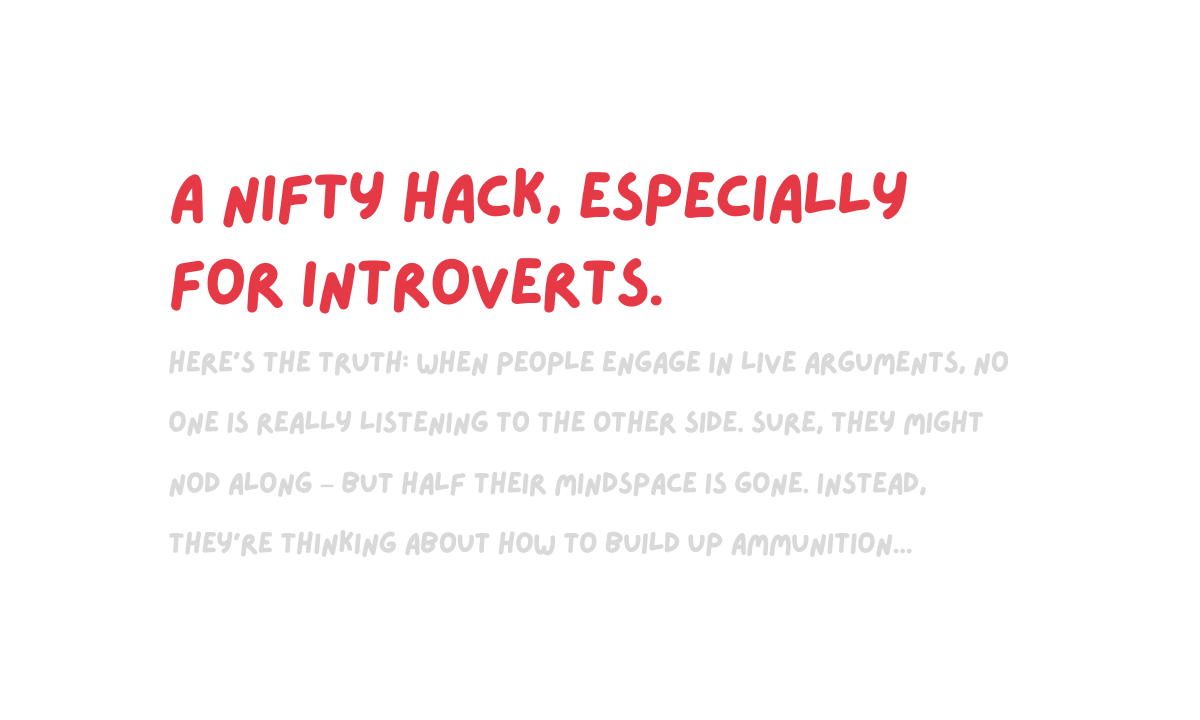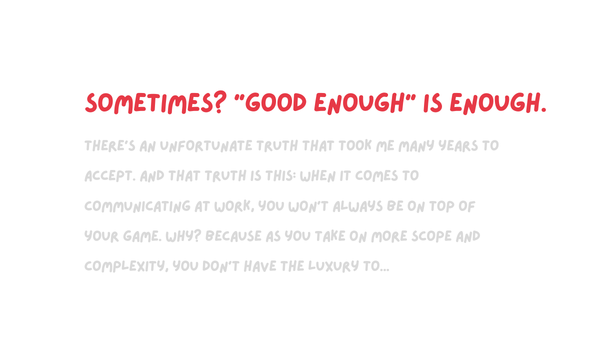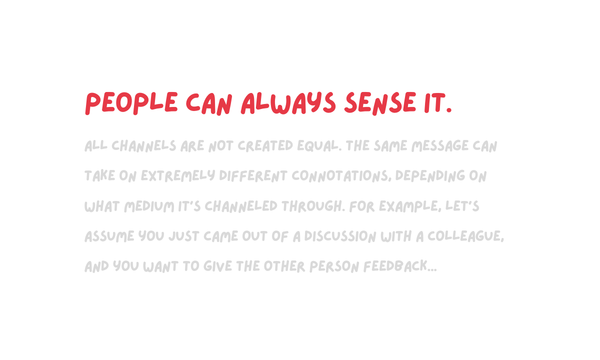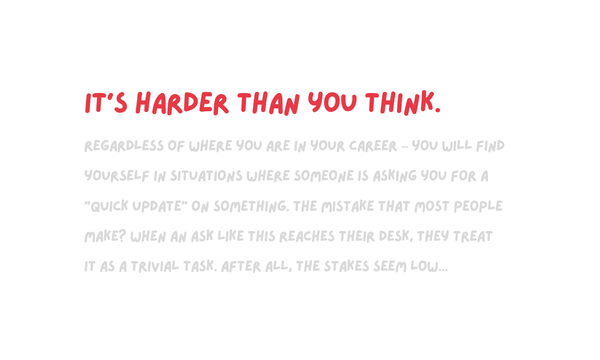Struggle with conflict? Try this one trick.

As a relative introvert – I never liked dealing with conflict.
In fact, I distinctly remember this personality test I took during my first year at Google.
The results? Everyone on my team was fairly "red" (strong-willed). Me? I was "green." I preferred harmony above all else.
I was the odd one out.
So to get better at conflict resolution, I tried many things over the years. For instance, I tried:
- Using fancier words
- Acting more assertive
- Developing thicker skin
- Writing (to avoid) live debate
None were all that successful.
But many years later, I learned one tip that helped get me over the hump.
That tip? Lead with curiosity.
👋 Join 4900+ readers and subscribe to Herng's Newsletter for free:
How Leading with Curiosity Works
Let's illustrate this with a hypothetical example.
- As part of the strategy team, you're trying to implement a new Customer Relationship Management (CRM) system for your sales teams.
- Your sales leaders are unhappy. They have their own process in place already. This new system is seen as an operational burden.
How would we go about tackling this?
Sure, we can try things like:
- Invoke Authority ("This is unfortunately non-negotiable, as it's an org-wide decision")
- Appeal to Reason ("This will pay off in the long run, as we'll get valuable insights about our business")
- Compromise ("Can we agree on doing monthly updates, instead of weekly updates then?")
Or – we can lead with curiosity.
And when we do so, we might approach the conversation by saying:
I assume that we can agree that we're trying to protect our sellers' time while also ensuring business rigour...
I believe that the new CRM system can address both goals (given the tool is extremely user-friendly now)...
However, what I'm hearing is that this is not what you and the sales team perceive to be true – and I'm curious to understand why...
When you lead with curiosity, a couple good things can happen.
💡 Benefit #1: the other person might actually listen.
Here's the truth: when people engage in live arguments, no one is really listening to the other side.
Sure, they might nod along – but half their mindspace is gone. Instead, they're thinking about how to build up ammunition for their rebuttal.
They're not really listening.
(And to be honest – neither are you.)
But when you lead with curiosity, you tend to ask questions. You invite the other person to share. You're putting the spotlight on your interlocutor, rather than trying to talk over them.
Only then does the discussion actually start.
👋 Subscribe for free to get Herng's newsletter directly in your inbox.
💡 Benefit #2: You get to disarm egos.
When you lead with curiosity, you get to park aside the notion of "right vs. wrong" for a moment. Because that's not what you're interested in.
Instead, you're exploring why two people – presumably equally well-intentioned – can't seem to find common ground.
(Oh yeah, that's the other thing: If you don't tell yourself to assume good intention, it's hard to move past this point.)
The fact that two reasonable lines of thinking about the business (again, presumably both well-intentioned) fail to jive should be interesting to you, rather than irking.
You should be curious to figure out why.
And when you allow yourself to be led by this notion of curiosity, you're not trying solve for who's more right (or more wrong).
Instead, you're more interested in fact-finding. You're focused on understanding and reconciling perceptions – rather than negating them.
You're decoupling the arguments from the individuals.
This then allows you to ask constructive questions like:
- Could it be because sales teams have been "burned" before (hence the distrust)?
- Could it be because the new system does not address certain needs?
- Could it be because the process is perceived to take up hours every week (whereas in reality it should only take minutes)?
And when you ask these questions, you're more likely to identify actionable outcomes. For instance, you might...
- ...clarify misconceptions on the spot ("Ah, thankfully these bugs have actually been fully resolved since last quarter")
- ...suggest useful next steps ("Sounds like it could be helpful if we hosted a training session with the sales team?")
- ...refine your proposal, now that you have more context ("Sounds like this feature is a dealbreaker for sellers, and we'll get more buy-in if we can secure a launch timeline")
You may not solve everything right away – but it's progress.
The Watchout
When it comes to disagreement, there is a common mistake that people make.
That mistake? Treating these kinds of discussions as if it's a debate contest, where you need to cram in as many arguments as possible before time is "up" (and if you do so – you "win").
This is obviously false.
Instead, it's critical to lead with curiosity: you're using the time you have with the other person to discover and investigate. No one needs to win (nor lose) at the end of 30 minutes.
If you treat it like a debate contest – you'll miss out on a chance to listen, iterate, refine, brainstorm... all very good and very valuable things.
The Caveat
There is one caveat to all of this: It's critical for you and your counterparts to explicitly agree on a common set of principles before getting too deep.
Otherwise everything else is moot.
Remember, we started the conversation by establishing:
...we're trying to protect our sellers' time while also ensuring business rigour...
But of course, not everyone might agree. And their views might be valid.
For instance, you could have sales leaders who believe that operational rigour only makes sense past a certain stage, and that right now they are ruthlessly optimizing for growth. No distractions allowed.
(OK, that definitely makes things harder.)
But at least you will have identified this disconnect upfront. It's no longer simply about tools and processes.
You'll need a different conversation – but you'll at least save time by not going down the wrong rabbit hole.
Key Takeaways
- Struggle with conflict resolution? Try leading with curiosity.
- When you lead with curiosity, a couple good things can happen:
- You're listening. That helps the other person listen too.
- You disarm egos. You're fact-finding, not judging.
- Always assume good intention. But align on guiding principles first.


